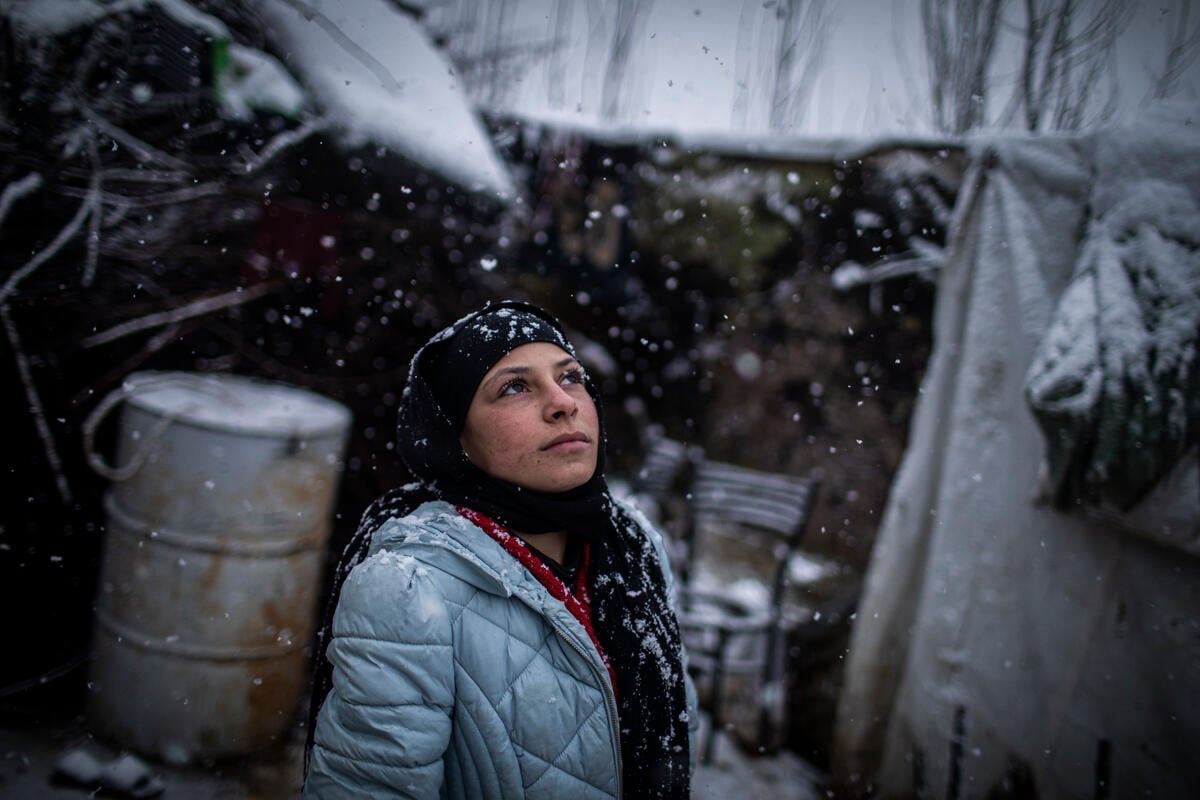Syrian refugee finds success and a business partner in Amman
Syrian refugee finds success and a business partner in Amman
From a young age, Ehab was fascinated by how things worked, even if it meant sacrificing some of his favourite toys to his insatiable curiosity. “When I was a kid, I would take apart my electronic games just to explore what was inside them,” he said.
Today he stands in front of a roomful of students at a Jordanian university, drawing diagrams on a digital display to explain how the smart devices that his start-up business sells can be used to remotely control everything from home heating systems to automatic plant feeders.
While his progression from tech-savvy youngster to technology entrepreneur may appear as logical as the computer programmes he writes, the fact that he did it while living as a Syrian refugee in Jordan is a testament to his own determination and the support of his adopted community.
Originally from Idlib, in northwestern Syria, Ehab and his family were temporarily living in Jordan for his father’s construction business when the conflict broke out back home more than eight years ago. Unable to return to Syria, they registered as refugees with UNHCR, the UN Refugee Agency, and remained in Jordan.
By cutting costs to a minimum, the family were able to save enough of the monthly financial support they received from UNHCR to put Ehab through college. After graduating in computer science, he started volunteering at an innovation lab where he taught programming to other Syrian refugees as well as locals.
“Through these workshops I found out about some of the problems that the students struggle with in their studies, including difficulties in learning programming,” he explained. “So I developed a kit to help them learn from home. It contains advanced devices and video presentations that help them learn easily, step by step.”
The catalyst that turned Ehab’s promising idea into a viable start-up business came from a seemingly unlikely source. Amani is a 22-year-old Jordanian who had failed to get the high school grades she needed to study computing, but whose determination to learn coding had led her to Ehab’s programming class.
“Computing is the future, so I was drawn to it and wanted to learn programming, but I didn’t have the grades,” she explained. “Ehab helped me to learn how to programme, which is something I never believed would be possible.”
When she heard about Ehab’s idea, she helped him to develop a business plan. Confident and outgoing, in contrast to Ehab’s shy demeanour, Amani was instrumental in securing seed-funding for the business, and together they founded Drag IOT (Internet of things) to start selling the high-tech programming kits.
"She believed in me and my idea."
“Without Amani, I wouldn’t have been able to follow this path,” said Ehab. Unable to register the business as a Syrian refugee, Amani’s involvement was vital from a legal standpoint. “But legal issues don’t make a successful team alone. It was the fact that she believed in me and my idea that made the difference.”
Coming from a traditional society, Amani said her decision to learn programming and go into business with Ehab was initially hard for her family to accept. “But I challenged these views, and now our families know each other and get on well,” she explained.
As well as his new business partner, Ehab credits his success to the support he has received in the city he now calls home, Amman. Jordan and its capital have a long history of welcoming refugees, from Palestinians to Iraqis, and in more recent years, Syrians.
The country is currently host to more than 755,000 registered refugees, the majority of whom are Syrians. As well as offering a safe haven, Jordan has provided refugees with access to services including health care and education. Since 2016, it has also issued more than 125,000 work permits to Syrian refugees.
With around 84 per cent of refugees in Jordan living outside of camps, Amman has traditionally played a major role as a host city, and is currently home to nearly 270,000 displaced individuals.
Amman is part of a growing global network of municipalities that are opting to embrace refugees and the opportunities they bring. From Sao Paulo to Vienna, these Cities of Light are giving hope to the world’s most vulnerable by offering sanctuary and the chance to become part of the social fabric.
UN High Commissioner for Refugees Filippo Grandi will travel to Amman on 20 June to mark this year’s World Refugee Day. During his visit, he will meet other Syrian entrepreneurs selling their goods at a refugee bazaar in the capital’s historic downtown, organized by UNHCR.
"Amman deserves to be seen as a city of light."
“We are proud to celebrate Amman on this special day for refugees, because Amman historically hosted refugees since the foundation of the city,” said the city's mayor, Youssef Al-Shawarbeh.
“Smart cities positively invest in the presence of refugees, because they can also benefit the host community,” he added.
Ehab and Amani both agree that their experience shows what can be achieved when refugees are embraced by their host communities. “Amman deserves to be seen as a city of light,” said Ehab. “It offers many opportunities. Everyone wants to support you.”
“As a Syrian and a Jordanian, our partnership represents a success story for others to learn from,” Amani added. “I am proud that someone like Ehab is achieving all this and helping me and other Jordanians, without thinking of himself as a vulnerable refugee. If everyone thought in this way, imagine how great this would be.”















